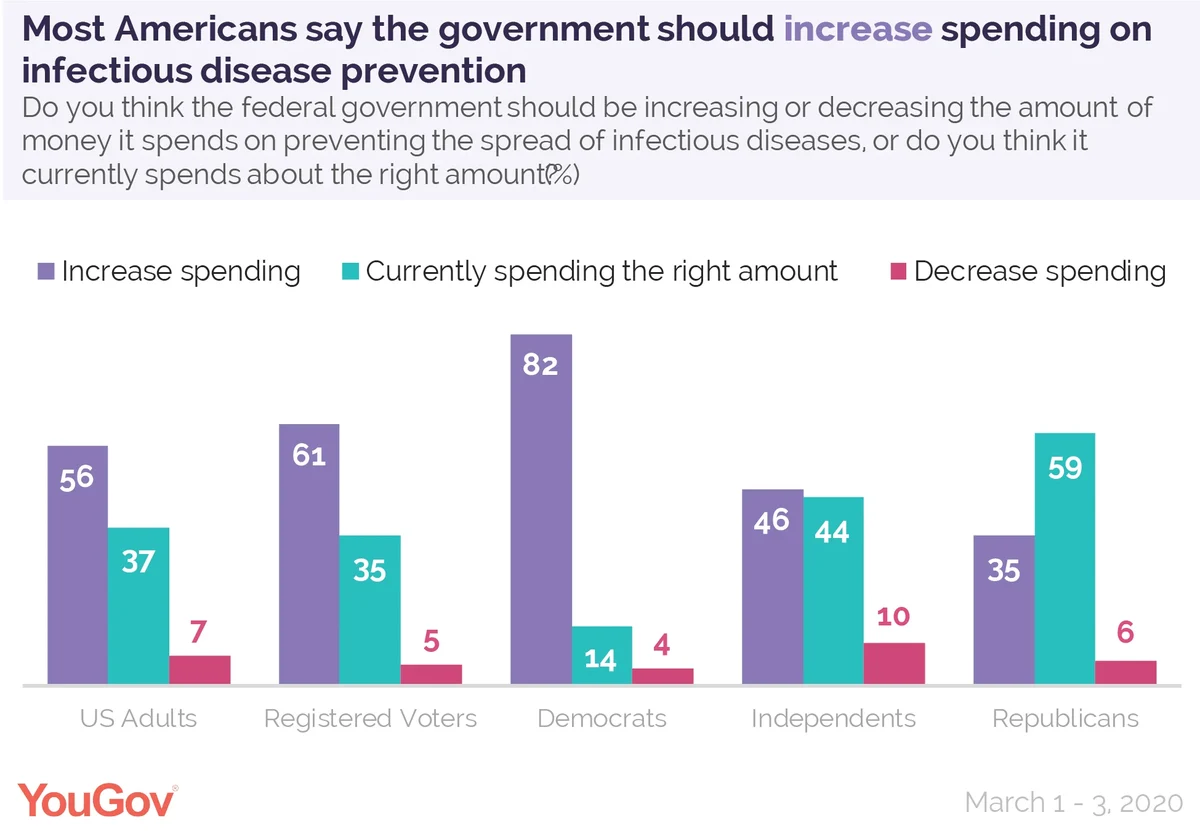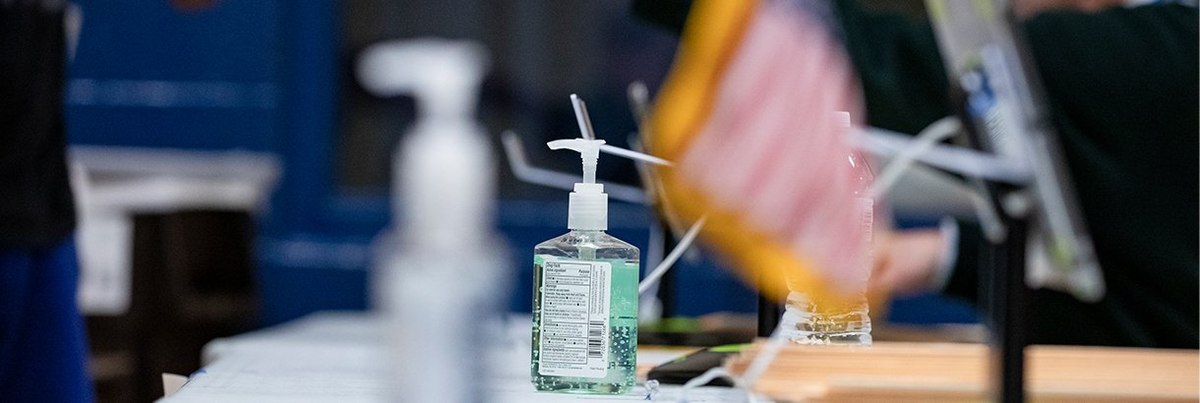As US coronavirus deaths rise, Americans in the latest Economist/YouGov Poll are paying more attention and starting to worry, and aren’t at all sure that President Donald Trump is doing enough.
Last week, those with an opinion approved of how Trump was handling the outbreak (39% approve; 31% disapprove. This week, Americans disapprove (37% approve; 47% disapprove).
There are several reasons for the disapproval. Americans favor strong actions. By 46% to 38%, the public is not happy with the appointment of Vice President Mike Pence to lead the USresponse. A majority of Americans (56%), including one in three Republicans (35%), say the government should be spending more than it is protecting the country against the spread of infectious diseases.
But there is also a sense from many that the President isn’t taking the virus seriously enough. About two in five (41%) think that—more than the combined totals of the few who believe he is overreacting and those who say he is acting appropriately.
Perhaps the greater threat to the president are economic fears, and the public response to last week’s sharp drop in the stock market. Negative assessments of the country’s economic future have increased since last week’s poll. Last week, more said the economy was getting better than thought it was getting worse. Now the responses on this question have reversed, with somewhat more pessimism than optimism.
A positive sign for the president is that his approval rating on handling the economy remains positive. About half (48%) approve of the way President Trump is handling jobs and the economy, 39 percent disapprove. The President’s overall rating remains in negative territory: 41 percent approve, 48 percent disapprove.
The share of the public following news about the coronavirus “very closely” rose 12 points in the last week, up to 36 percent from 24 percent one week ago. The share of Americans who are “very concerned” about the possibility of an epidemic in the US is also up slightly, with two in three Americans now expressing at least some concern. Nearly half say they are personally worried about contracting the virus, now officially known as COVID-19.
{{ raw_content }}
Even opinions about this virus are subject to the screen of partisanship. Republicans (56%) are far less likely than Democrats (86%) to be very concerned about an epidemic in the country (though a majority are concerned), and just a third of Republicans admit they are worried about personally contracting the virus, compared to nearly half of the overall public.
The virus has encouraged some people to change their normal routines. More than one in ten say they have changed their usual behavior (and many of those then specified more frequent hand washing and sanitizer use) or changed their travel plans due to the virus. One in ten say they have worked from home or worn a mask.
Many Americans support requiring strong measures against any outbreak: a third would require people who could work from home to do that, and would cancel long distance travel. A quarter would cancel any meetings or events involving 1,000 or more people. More than one in ten (15%) would close schools and universities and require face masks. Still, more oppose than support each of those actions. However, two-thirds would quarantine anyone entering the country who has been in an infected area before entering the US.
Read the full toplines and tables results from this week’s Economist/YouGov poll
Image: Getty










